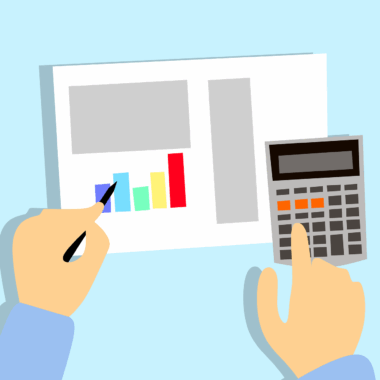How to Work with Tax Professionals to Meet Critical Deadlines
Working alongside tax professionals can significantly enhance your ability to meet annual tax deadlines. They provide expert guidance tailored specifically to your financial situation. It’s imperative to establish a strong working relationship with your tax preparer well before the deadlines approach. Regular communication assists in gathering the necessary documents, clarifying any questions, and ensuring accurate filings. Be proactive by providing your tax professional with complete information, including income sources, deductions, and investments. Schedule an initial consultation early in the year or as soon as you have your documents ready. This can help in creating a timeline of tasks that need to be completed. Know the various tax deadlines and be diligent about adhering to them. For example, personal tax returns must typically be filed by April 15. Understand the implications of filing late and the penalties that could arise, which can add unnecessary stress. By collaborating closely, you can prepare your returns efficiently, reduce errors, and increase the likelihood of receiving favorable outcomes. Keeping organized records will also streamline the process and allow tax professionals to maximize your deductions fully.
In addition to preparation, selecting the right tax professional is crucial for effective management of tax deadlines. Consider their credentials, experience, and areas of expertise. Certified Public Accountants (CPAs) with specialization in tax planning can prove invaluable, providing insights that save time and money. Check their history with past clients; this feedback can guide you in making an informed decision. Starting your search with referrals can be highly beneficial—speak to friends or family who have had positive experiences with certified professionals. It’s also wise to conduct interviews, asking pertinent questions about their experience with similar financial circumstances. Always ensure they stay updated with the latest tax laws and regulations, as the tax code can change frequently. Additionally, consider their availability during busy seasons; some professionals may have limits on how many clients they accept leading up to filing deadlines. Ensure clear communication about fees upfront to avoid surprises later; understanding their fee structure will prevent unnecessary stress as deadline approaches. Invest time in finding a reliable partner early on to streamline your tax filing process and avoid last-minute rushes.
Understanding Tax Processes and Timelines
Understanding the tax preparation process is fundamental for successfully meeting various tax deadlines. Tax professionals often follow a systematic approach that begins with assessment and continues through to submitting the return. Initially, they will gather necessary documentation, including W-2 forms and 1099 statements, enabling them to assess your tax liability adequately. Next, they’ll compute applicable deductions and credits, ultimately determining your final tax bill or refund. Notably, staying updated on significant changes within the tax code is essential, as alterations may affect your deductions or eligibility. Familiarize yourself with important dates: extension deadlines, quarterly payments, or state-specific rules. These timelines can differ, contributing to confusion; knowing them will prevent financial penalties. Be proactive in setting reminders for each relevant date, allowing for proper planning and minimizing stress as these approach. Working closely with tax professionals can ensure that they are aware of any deadlines that might affect your return. When in doubt, do not hesitate to ask questions; clarity will help facilitate a more efficient process. Trusting their expertise, while remaining informed, equips you with the tools to navigate tax season confidently.
Another consideration is the gathering and organization of financial documents, which serves as the backbone for your tax preparation process. This responsibility primarily lies with you, the taxpayer. Create a dedicated workspace for all tax-related documents; this can include income statements, receipts for deductions, and investment records. Regularly update this information throughout the year to avoid a last-minute scramble as deadlines approach. Establishing an organized system will help streamline communication with your tax professional. Use folders to categorize documents by type, employment income, business income, or other income streams. Implementing technology can also ease burdens; consider utilizing a spreadsheet to track income and expenses throughout the year. Make sure all documents are easily accessible and can be shared with your tax advisor efficiently. Early preparation allows for thorough discussions regarding what might be deductible or subject to limitations. Moreover, if issues arise during tax preparation, having documents readily available can help clarify misunderstandings and resolve them quickly. An organized approach lays the groundwork for a successful filing, ensuring you capitalize on every deduction and alleviate unnecessary stress during tax season.
Communicating Effectively with Your Tax Advisor
Effective communication with your tax professional is vital, ensuring all your financial details are accurately presented for tax filing. Begin by fostering an open dialogue about your financial goals and potential tax strategies. Express concerns regarding previous experiences to establish trust and understanding. Ask how they plan to handle different aspects of your taxes, such as deductions or credits that may apply to you. Inquire about proactive strategies to minimize future tax liabilities. Regular check-ins throughout the year about potential life changes, such as a new job, marriage, or significant expenditure can be important influences on your tax situation. Place emphasis on response timelines; verified communication helps you stay updated on your filing progress. Make use of digital tools to share documents securely with your advisor, simplifying the overall process significantly. In the age of technology, utilize emails, video calls, or project management applications to enhance collaboration. By maintaining an ongoing conversational flow, you can anticipate potential issues that may arise during the filing process. Establishing this rapport increases the likelihood of satisfactory outcomes regarding deadlines, returns, and filing accuracy moving forward.
As tax deadlines approach, reviewing and revising your returns prior to submission becomes essential. Engage with your tax professional to ensure all information is accurate and that nothing has been overlooked. This offers an opportunity to ask specific questions about any concerns regarding your tax filings. Enhancing your understanding through discussions about possible audits or discrepancies will prove beneficial. Discuss how the entire process unfolds from how to contest any errors to what records you need to maintain. Making corrections at this stage not only helps avoid costly mistakes but also saves time and mitigates stress. If errors are found after submission, prompt action must be taken to amend your return as soon as possible. This can include filing an amended return for any inaccuracies. The earlier the correction is made, the better your chances are of preserving favorable outcomes. Work with your professional to plan for any potential liabilities reflected in the scrutiny of your financials. Proactive practices can transform a potentially stressful experience into a nuanced understanding of your financial health and tax obligations, which is valuable for future years.
In Conclusion: The Advantages of Precision in Tax Filing
In conclusion, working efficiently with tax professionals to meet deadlines is an essential part of financial planning. Recognizing the importance of organization, communication, and clarity can enhance your overall filing experience. Remember that your tax responsibilities are not merely obligations but opportunities to better understand your finances. By establishing early connections with your tax advisor, you’ll be better positioned to navigate potential complexities. Fostering communication can promote trust, paving the way for a more personalized approach to your tax strategy. Maintaining detailed financial records and documentation plays a critical role in supporting accuracy and maximization of potential refunds. Embrace the expertise of tax professionals, utilizing their knowledge to implement effective strategies for minimized liabilities. As you collaborate, keep an ongoing dialogue, as this can prevent common pitfalls that taxpayers frequently encounter. The goal is to achieve compliance while maximizing benefits. Maintain proactive schedules leading up to deadlines; this practice will alleviate pressures and uncertainties. Ultimately, understanding your tax obligations will not only position you for current filings but also empower your future financial planning endeavors. Deliberate cooperation can significantly enhance your overall experience during tax season.
Ultimately, engaging tax professionals offers numerous advantages that contribute to meeting critical deadlines. Experience, specialized knowledge, and access to resources help ensure that filings are accurate and timely. When utilized effectively, tax professionals can transform what seems like an overwhelming process into a manageable and insightful endeavor, transforming your overall perception of taxes. With their guidance, taxpayers can discover various deductions and credits often overlooked, resulting in potential savings. The collaboration emphasizes maximizing returns while minimizing liabilities. Additionally, understanding various tax processes emphasizes responsible financial planning, preparing taxpayers for future tax responsibilities. It’s essential to recognize the value of investing time with professionals—this could lead to better financial decisions and awareness. Clear and open communication fosters transparency, aligning your interests with that of your advisor, enabling well-informed choices. Overall, navigating tax deadlines successfully leads to increased peace of mind, allowing you to focus on your broader financial aspirations. The proactive, informed approach ensures a greater sense of control as you enter tax season. Establish relationships with tax professionals early, incorporates effective strategies, and sets clear communication for your financial future.





